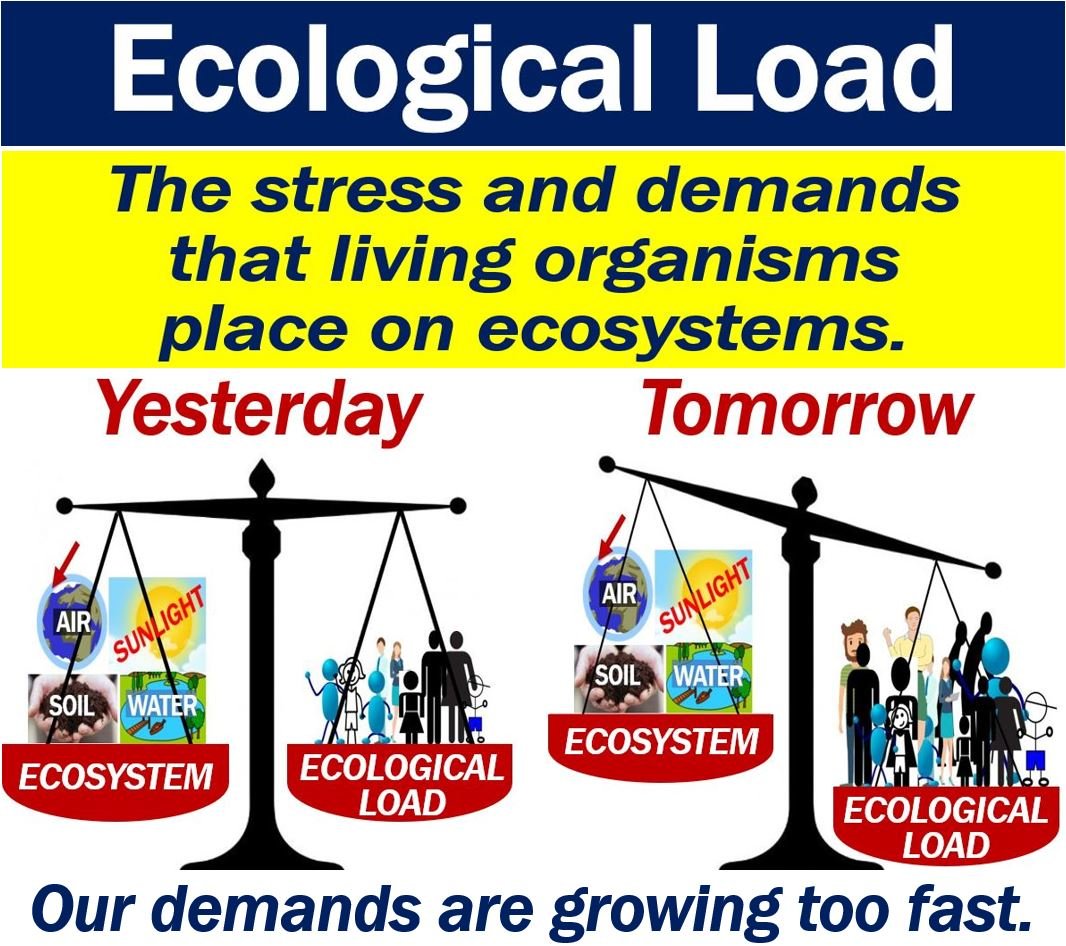What is ecological load? Definition and examples
Ecological load refers to the stress and demands that humans and other living organisms place on ecosystems. Pollution is an example of stress. Our food and water requirements, for example, are the demands that living organisms place. Humans’ ecological load has been growing rapidly over the past one hundred years. The last century’s growth has been significantly greater than the previous century’s.
Ecological load is similar to ‘ecological impact.’ Ecological impact is the effect that natural phenomena or human activity have on the ecosystem.
Ecologists warn that the ecological load humans are imposing will soon exceed our environment’s capacity. In other words, what we are demanding from our ecosystem is unsustainable.
BusinessDictionary.com says the following regarding the meaning of ecological load:
“Stress (such as pollution) and demand (such as for food and water) placed on ecosystems by humans and/or other living organisms. Loads imposed by humans have been rising steadily throughout the recent history.”

Ecological load versus yield
While ecological load is all about taking from the environment, ecological yield is the opposite. Ecological yield is the harvestable population growth of an ecosystem.
Often, an ecological yield in one place makes up for an ecological load in another.
Regarding a yield in one place offsetting a load in another, Wikipedia says:
” Greenhouse gas released in one place, for instance, is fairly evenly distributed in the atmosphere, and so greenhouse gas control can be achieved by creating a carbon sink literally anywhere else.”
Critical load
We call the greatest load an ecosystem can sustain without long-term harmful consequences its critical load. In other words, the critical load is the most pollution an ecosystem can tolerate without being damaged.
Enviropedia defines the critical load as:
“The highest load that will not cause chemical changes leading to long-term harmful effects in the most sensitive ecological systems.”
Ecological load – companies
A growing number of companies today focus on being profitable but at the same time reducing our ecological load.
They have adopted a management philosophy we call ‘eco-efficiency.’
Eco-efficiency involves generating more production from fewer resources and lower energy consumption, i.e., getting more from less.
Ecological
‘Ecological’ means ‘related to ecology.’
‘Ecology‘ is the relationship between water, land, air, animals, plants, etc., typically in a specific area. ‘Ecology’ may also be the study of this relationship.
There are many terms that begin with the word ‘ecological.’ Ecological indicators, for example, are organisms that give us vital data about our environment.
When trying to determine how our ecosystem is coping with an ecological load, we gather data from many different ecological indicators. Lichens, for example can tell us about air pollution.

